
What is healthcare CRM?
Discover how Cured's platform transforms patient relationships throughout the entire healthcare journey with powerful tools built specifically for medical organizations.
Healthcare CRM solutions are specialized platforms that help providers bridge the gap between clinical excellence and consumer expectations. Unlike their counterparts in retail or finance, healthcare CRMs tackle unique challenges like regulatory compliance and care coordination while building meaningful patient connections beyond a single visit or procedure.

let's define healthcare CRM
Healthcare CRMs are specialized software solutions designed to help healthcare organizations manage relationships with patients throughout their entire healthcare journey. Unlike traditional CRM systems, healthcare CRM solutions are specifically tailored to address the unique challenges of the healthcare industry, including regulatory compliance, patient privacy concerns, and complex care coordination workflows.
A healthcare CRM serves as a central hub that connects patient data across multiple touchpoints, enabling healthcare providers to:
- create holistic, 360-degree views of each patient
- personalize patient communications and care plans
- streamline operational workflows
- improve patient acquisition and retention
- drive revenue growth while enhancing care quality
- ensure HIPAA compliance and data security
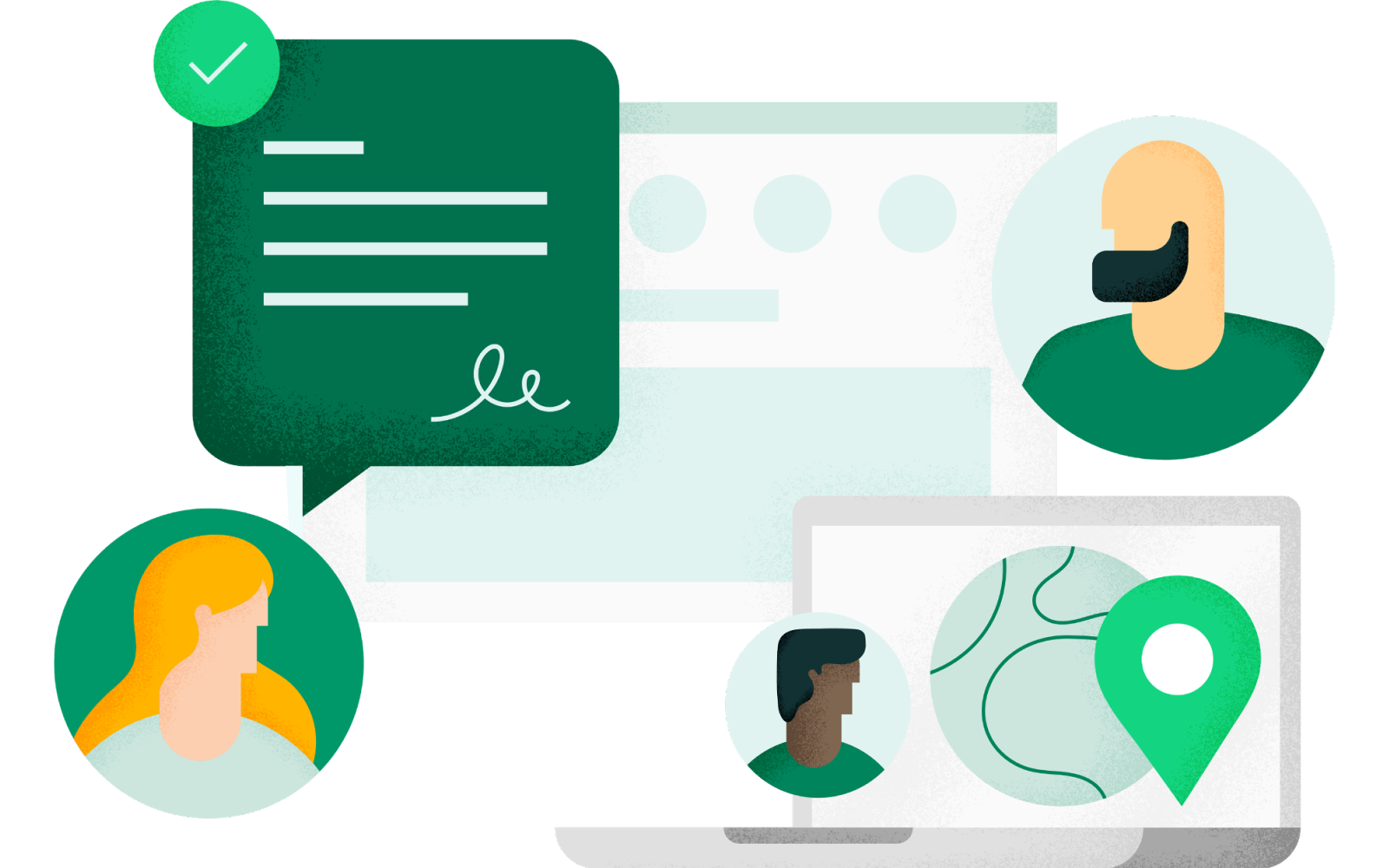
features of healthcare CRM
unified patient profiles
Healthcare CRMs consolidate patient information from multiple sources- electronic health records, billing systems, appointment histories, communication preferences, and more—creating comprehensive patient profiles. This unified view enables healthcare providers to understand patients' unique needs and preferences.
multi-channel communication tools
Effective patient engagement requires meeting patients where they are. Advanced healthcare CRMs offer integrated communication capabilities across email, SMS, patient portals, and phones, allowing for seamless outreach that respects patient preferences.
automated patient journeys
Pre-built and customizable workflow automation enables healthcare organizations to create personalized patient journeys, from appointment reminders and follow-up communications to preventive care notifications and health education campaigns.
HIPAA-compliant security
Healthcare CRMs must prioritize patient data security. Leading solutions like Cured are HITRUST-certified and HIPAA-compliant, with robust security features to protect sensitive patient information.
AI-powered engagement tools
Modern healthcare CRMs leverage artificial intelligence to optimize patient engagement. Copilots and Agents automatically prioritize outreach, recommend next best actions, and identify at-risk patients who may benefit from proactive intervention, all while continuously learning from interaction data to improve future recommendations.
seamless integration with your existing system
Leading healthcare CRM solutions don't force you to rip and replace your current systems; instead, instead integrating with your EHR, billing platforms, and other clinical tools. Your team can access patient information without toggling between multiple screens or duplicating data entry.

benefits of using healthcare CRM software
patients feel understood
Healthcare CRM software gives your team immediate access to a patient's complete history – their preferences, previous visits, family situation, and communication history without making them repeat themselves. This isn't just about convenience; it's about building trust.
decrease administration burden to focus on care
Healthcare CRM automates the tedious stuff that burns out your team. That reminder call about tomorrow's appointment? Automated. That post-discharge follow-up? Scheduled and tracked. Those referral forms? Pre-populated with patient data. With a healthcare CRM handling these routine tasks, your nurses can focus on patient care, your physicians can spend more time on complex cases, and your front desk staff can provide a warmer welcome instead of being buried in administrative tasks.
seamless care coordination
We've all seen patients' frustration when they're caught between specialists who don't seem to talk to each other. Healthcare CRM bridges those gaps by creating a single source of truth for each patient's journey. For patients with chronic conditions who see multiple providers, this level of coordination is life-changing.
clear financial returns
Healthcare technology investments often come with promises of returns that never materialize. Healthcare CRM is different because it tracks exactly what matters: appointments booked, no-shows prevented, referrals completed, and revenue generated. When your cardiology department launches a heart health campaign, your CRM shows you exactly how many screenings it generated, what percentage converted to procedures, and the total revenue impact.
actionable data insights
Here's where healthcare CRM stands out: turning mountains of data into actionable insights without requiring your team to become data scientists. The system continuously analyzes patient demographics, treatment patterns, referral sources, and revenue trends, presenting this information through intuitive dashboards anyone can understand.
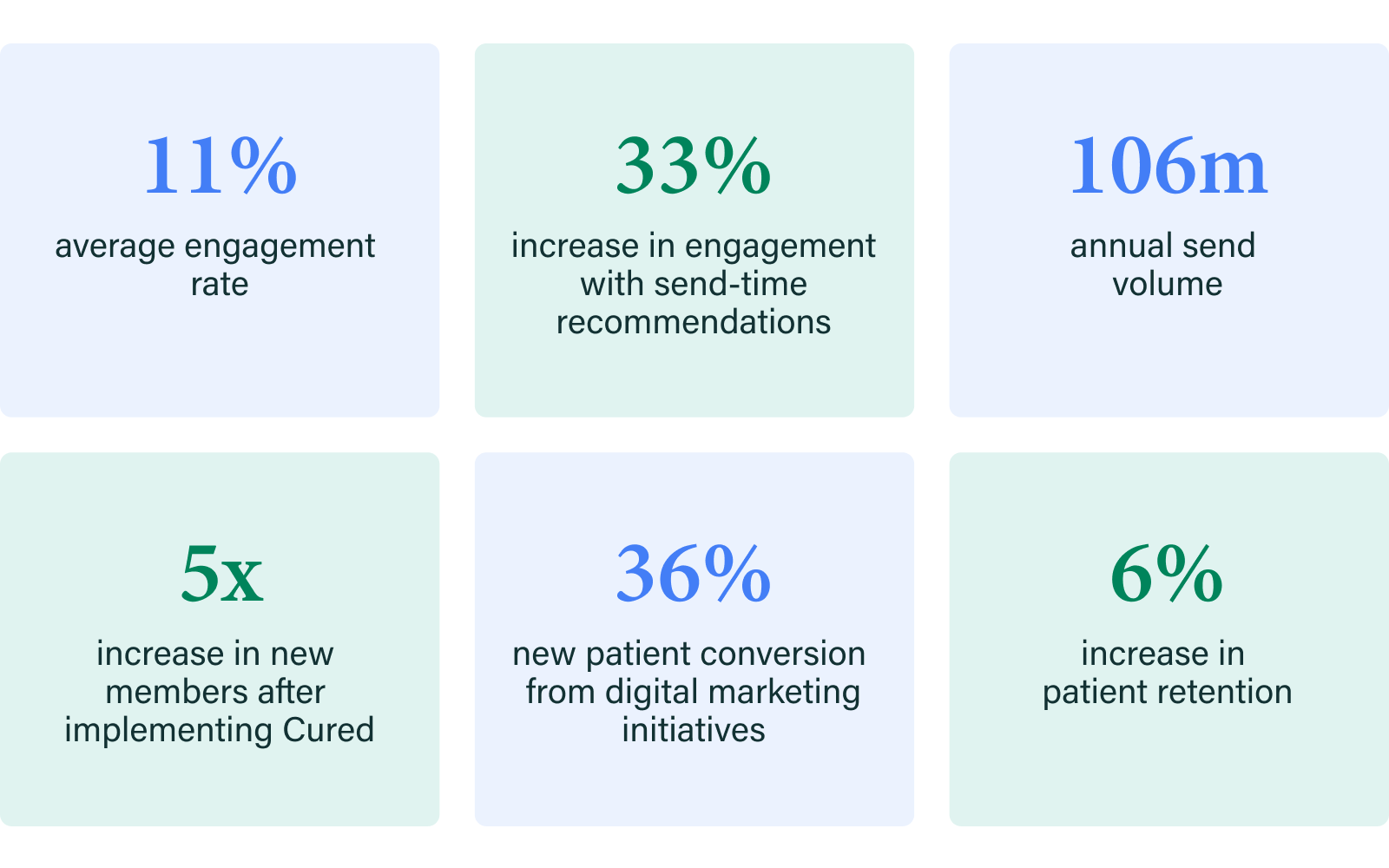
targeted marketing and patient outreach
Healthcare CRM helps you reach the right patients with the right messages at the right time. The system can segment your patient base and create targeted campaigns that resonate. Whether it's reminding seniors about flu shots, promoting wellness checks to young families, or reaching out to patients who haven't visited, the healthcare CRM software can do it all.
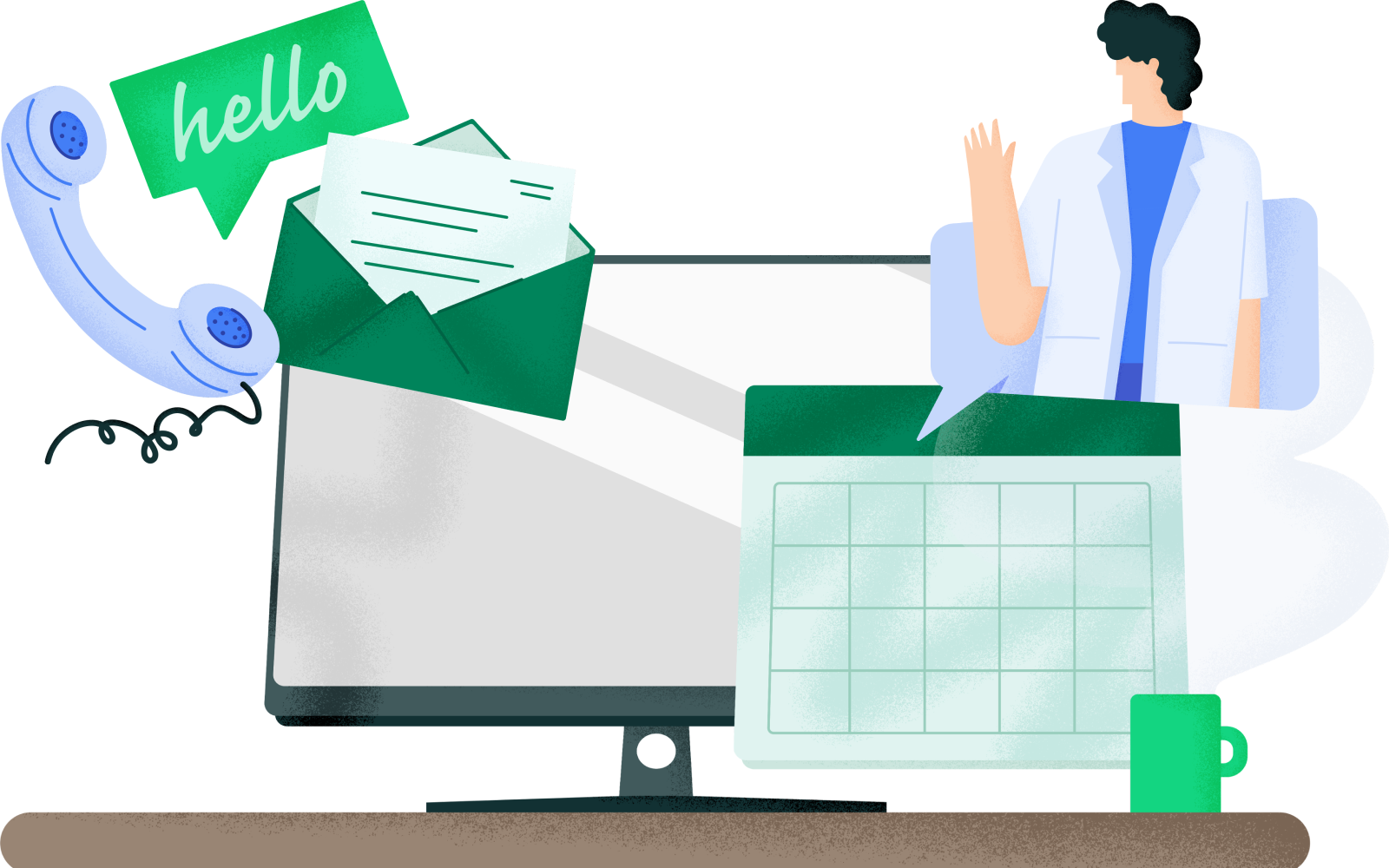
why do companies need healthcare CRM?
provide a better patient experience
Today's patients expect healthcare experiences that respect their time, preferences, and unique circumstances. Healthcare CRM transforms these connections by tracking communication preferences, appointment history, and personal context. When your front desk knows that a patient prefers appointment reminders by text instead of phone, and your clinical team understands that someone is balancing their own health needs while caring for family members, you're delivering care that feels personal, not transactional. Healthcare CRM makes these tailored experiences possible at scale without relying on staff to memorize details about thousands of individuals.
deliver easier access to healthcare information
How much time does your team waste hunting for information across different systems? Healthcare CRM creates a unified hub where staff can instantly access relevant patient data without toggling between your EHR, billing system, scheduling platform, and patient portal. This consolidated view means less time clicking through screens and more time connecting with patients. When someone calls with an urgent question about medication or treatment instructions, your team can provide answers immediately, not after minutes of awkward silence while they search for information.
streamline operations to enable liaisons
Your provider liaisons and referral coordinators are relationship builders, but they're often buried in administrative tasks instead of strengthening network connections. Healthcare CRM automates routine processes like follow-up scheduling and performance reporting, allowing your team to focus on what matters: building the partnerships that drive organizational growth. With automated workflows handling the logistics, your liaisons can spend their time having meaningful conversations with referring partners, understanding their needs, and ensuring seamless care transitions for patients.
join leading healthcare providers!
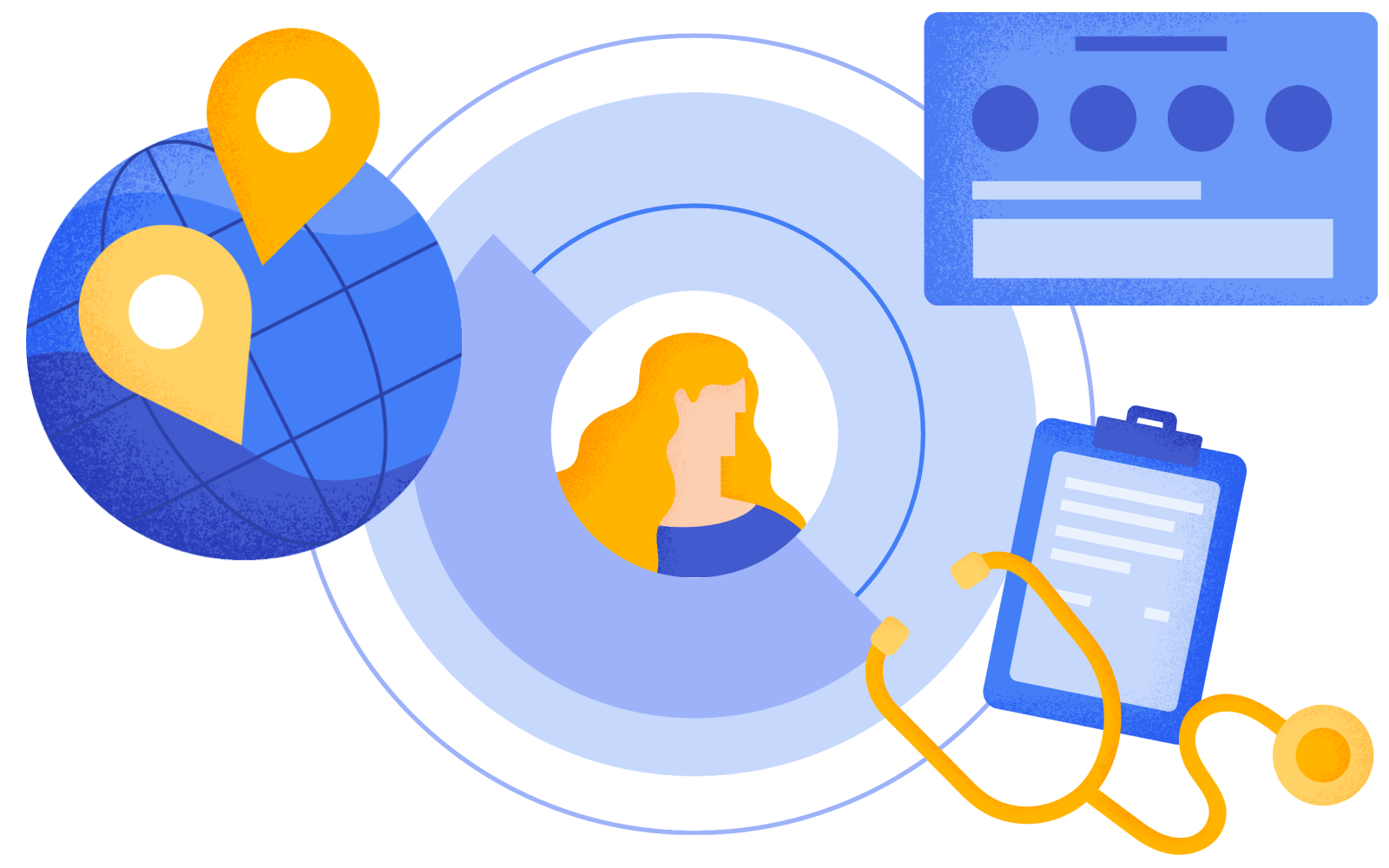
CRM vs EHR systems
crm and ehr: complementary tools, not competitors
You're not alone if you've ever thought, ‘We already have an EHR system; why do we need a CRM too?’. The distinction matters because these systems serve fundamentally different purposes in your healthcare technology ecosystem:
The EHR (Electronic Health Record) system is the central hub of clinical documentation. These systems excel at capturing medical histories, documenting treatments, and managing clinical workflows. Think of your EHR as your clinical source of truth, where healthcare providers record what happens during patient visits and track health outcomes over time.
Healthcare CRM systems, on the other hand, focus on relationship management. They're designed to capture how patients interact with your organization before, between, and after clinical encounters. Your CRM tracks outreach campaigns, communication preferences, service line interests, and engagement patterns that typically fall outside the scope of traditional EHR systems.

how do I get started?
Implementing a healthcare CRM represents a significant opportunity for healthcare organizations seeking to enhance patient experience while driving measurable outcomes. However, the complexity of healthcare systems often creates uncertainty about where to begin this digital transformation journey.
Are you also wondering how to get started? Consider this structured framework to guide your implementation strategy:
evaluate healthcare CRM tools
First, take time to evaluate what you actually need in a CRM tool tailored specifically to healthcare. Not all CRM platforms are created equal, and healthcare has unique requirements that generic solutions often miss. Consider factors like:
- HIPAA compliance and security certifications
- Integration capabilities with your existing healthcare systems
- Healthcare-specific workflows and templates
- Scalability to match your organization's growth
Ask potential vendors about their experience in healthcare and request case studies from organizations similar to yours. The right tool should understand both the clinical and consumer aspects of healthcare.
The numbers speak for themselves: Organizations implementing Cured have seen a 5x increase in new members and over 1 million new patient interactions in just 6 months, with a 45% appointment scheduling rate conversion. With Cured, healthcare providers experience a 100x increase in click rates, open rates, and CTR rates compared to previous solutions.
define your strategic goals
Next, think carefully about the goals you want to achieve by leveraging digital marketing and CRM capabilities. Are you looking to:
- Increase patient acquisition for specific service lines?
- Improve retention and reduce leakage?
- Enhance care coordination and close care gaps
- Streamline patient access and reduce no-shows
Looking at what other healthcare organizations are achieving can provide valuable benchmarks and inspiration. After implementing the right CRM solution, many providers see dramatic improvements in metrics like appointment bookings, referral conversions, and patient satisfaction.
Consider the ROI potential: Cured helps organizations improve the time it takes to close a call center case by 91% and attract 5x more new customers with growth marketing campaigns. In an industry where it costs 7x more to bring a lapsed patient back than to retain existing relationships, Cured's retention capabilities deliver significant value.
engage patients at every stage
Finally, begin engaging with your patients on a more intimate level. The true power of a healthcare CRM is its ability to reach patients at every stage of their healthcare journey:
- awareness: Help potential patients discover your services when they're researching health concerns
- consideration: Provide valuable information as they evaluate care options
- decision: Make scheduling and access seamless when they're ready to act
- care: Support them throughout their treatment journey with timely reminders and education
- follow-up: Maintain the connection between episodes of care to build lasting relationships
The right healthcare CRM platform should transform patient experiences quickly while providing the security and compliance features that healthcare demands. Let's explore the essential components of a comprehensive healthcare CRM solution.
The impact is clear: Cured's personalized campaigns make patients 1.8x more likely to set appointments. Cured's AI-generated subject lines deliver 32% higher open rates, and their send time recommendations lead to a 33% increase in engagement- all critical in a world where 47% of consumers say healthcare is more focused on industry needs than patient needs.
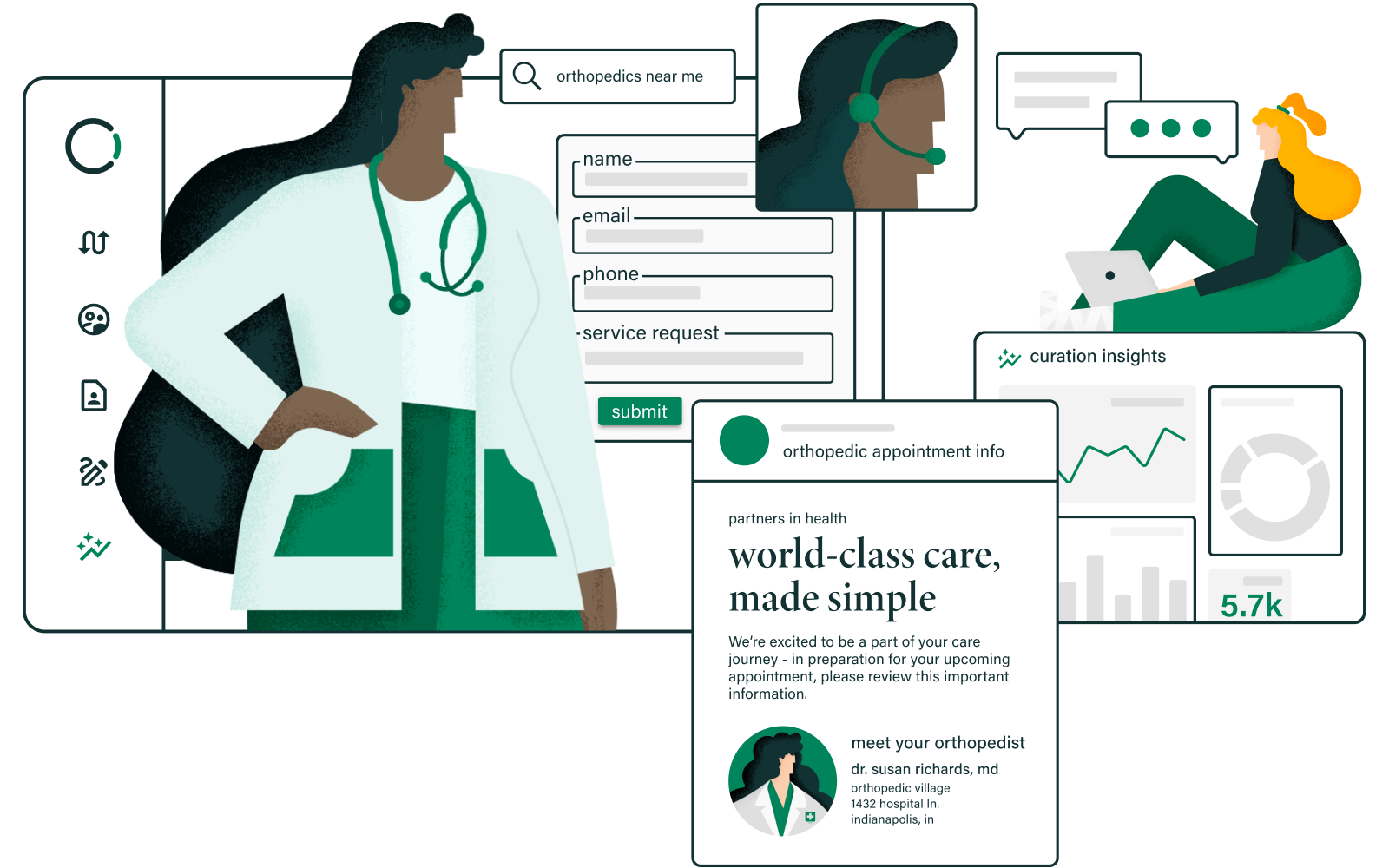
components of cured- healthcare CRM for leading providers
consumer data platform (CDP)
Ever feel like you're sitting on a goldmine of patient data but can't quite use it? That's where a Consumer Data Platform (CDP) comes in. Think of a CDP as the brain of your healthcare CRM—it's where all those scattered pieces of patient information finally come together to tell a complete story.
Cured's CDP doesn't just collect data; it transforms it into something you can actually use. Imagine being able to see not just a patient's medical history but also their communication preferences, service line interests, and previous interactions with your organization. That's the power of a unified patient view.
What makes this really stand out:
- unified patient 360 view: You get a 360-degree patient view, combining everything from clinical notes to billing history to website behavior in one place
- 80+ pre-built data integrations: No more tech headaches with 80+ pre-built integrations that snap right into your existing systems
- audience engagement insights: Real insights into how different patient groups engage with your communications, so you know what's working and what's not
- usable first and third-party data: The ability to blend your internal data with external sources to fill in the gaps in your understanding
Once you break down those frustrating data silos, you can finally deliver the kind of personalized care experience that patients increasingly expect. It's like going from treating a medical record number to treating a real person with unique needs and preferences. And in today's healthcare environment, that personalized touch isn't just nice to have; it's essential.
Also read- CDP-powered personalization for modern healthcare
outreach
Effective patient communication requires meeting consumers where they are through their preferred channels. Cured's Outreach capabilities enable healthcare organizations to connect seamlessly across channels, driving both growth and retention.
The platform offers:
- 100+ pre-built journey templates: Implement proven communication workflows for appointment reminders, care gap closures, service line promotions, and more
- advanced segmentation: Target the right patients with relevant messaging based on clinical, demographic, and behavioral factors
- machine learning propensity models: Identify patients most likely to benefit from specific services or interventions
- healthcare-specific ROI modeling: Measure and demonstrate the financial impact of your outreach campaigns
- intelligent automation: Deliver timely, relevant communications without increasing staff workload
With these capabilities, healthcare marketers and care teams can create meaningful, multi-channel campaigns that enhance the patient experience while driving measurable business results.
access center
The patient access experience often defines how consumers perceive your organization. Cured's Access Center enables agents to deliver enhanced consumer experiences that both drive revenue and improve operational efficiency.
Key capabilities include:
- pre-built workflows: Standardize best practices for common patient inquiries and requests
- AI smart assistant: Empower agents with real-time guidance and information retrieval
- automated task routing and call documentation: Reduce administrative burden and ensure appropriate follow-up
- real-time operational monitoring: Identify bottlenecks and optimization opportunities
- telephony integrations: Create a seamless experience between phone systems and your CRM
By improving the access center experience, healthcare organizations can reduce wait times, increase first-call resolutions, and ensure patients connect with the right care at the right time.
Also read- a data-driven guide to enhancing ROI in healthcare access centers
provider relationship management (PRM)
Cured's Provider Relationship Management tools streamline operations to enable liaisons to focus on building relationships, not administrative tasks.
The PRM component helps organizations:
- strategic alignment: Align outreach efforts with service line priorities to foster intentional growth
- referral pattern tracking: Identify opportunities to improve referral volumes and strengthen network relationships
- automated workflows: Reduce manual data entry and automate routine follow-up tasks to save time and minimize errors
By strengthening provider relationships, healthcare organizations can ensure appropriate referrals, reduce leakage, and build a more cohesive care network for patients.
Also read- one unified, AI-powered platform for enhancing provider relations
see the difference for yourself
Why wonder when you can know? Schedule your personalized demo and witness firsthand how our solution can revolutionize your workflow. Our team will walk you through a customized presentation addressing your unique pain points and showing you the path to measurable success. The most valuable 30 minutes you'll spend this quarter.
